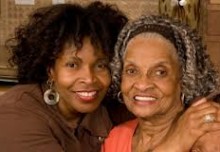 If you are a caregiver to an older loved one, you likely have heard of it, but maybe you were not sure if it is a real syndrome…or if it is, what you can do about it. I am referring to what is termed “sundowners syndrome,” and let me tell you, it is real. Sundowners can affect anyone with Alzheimer’s or any of the conditions along the dementia spectrum as well as those who may simply have some cognitive impairment or diminishing of their executive function.
If you are a caregiver to an older loved one, you likely have heard of it, but maybe you were not sure if it is a real syndrome…or if it is, what you can do about it. I am referring to what is termed “sundowners syndrome,” and let me tell you, it is real. Sundowners can affect anyone with Alzheimer’s or any of the conditions along the dementia spectrum as well as those who may simply have some cognitive impairment or diminishing of their executive function.
How do you spot it? Well, you may have noticed that there are times of day when your older loved one is simply less lucid or unable to respond to others in their midst, and it actually does coincide with the end of the day…sundown or late afternoon. Do they become anxious or nervous? Are they more demanding or even fearful of people whom they know? Are they just confused or disoriented or just plain cranky? They may shout or begin to walk about, have a change in mood, talk to someone or about someone who is not there. Okay, so you may see some of these in your older loved one; what can you do?
Follow these recommended steps:
- Keep to a regular, daily routine with your loved one so that they do not have to process new information late in the day; they simply cannot be intellectually nimble.
- Avoid having dinner being a heavy meal, and avoid sweets, caffeine or alcohol.
- Limit naps to earlier in the day; make sure they have not had a chance to nap within four hours of their bed time.
- Keep the lights on, but close the curtains to limit the shadows they must process or navigate, and limit noisy distractions.
- Be calm and reassuring, and if they make an assertion about a loved one who is no longer alive, do not argue – acknowledge and then redirect.
- If none pf these work, it may be more than just sundowners; talk to your loved one’s physician.
And take care of you, the caregiver. I had a client who talked about the transition from having six hours of uninterrupted sleep a night to having six hours of interrupted sleep. That is a recipe for disaster – your own. Take naps or breaks during the day for yourself, and do not lose contact with friends and hobbies. Get respite care; reach out to the senior communities within your locale for a place to drop off your loved one or for home care personnel who can come to your loved one. You also will get support as well as good ideas from a local caregiver’s support group; yes, it does take a village.
Charlotte Bishop is an Aging Life Care Professional and a Geriatric Care Manager and founder of Creative Care Management, certified professionals who are geriatric advocates, resources, counselors and friends to older adults and their families in metropolitan Chicago. Please email your questions to info@creativecaremanagement.com.







